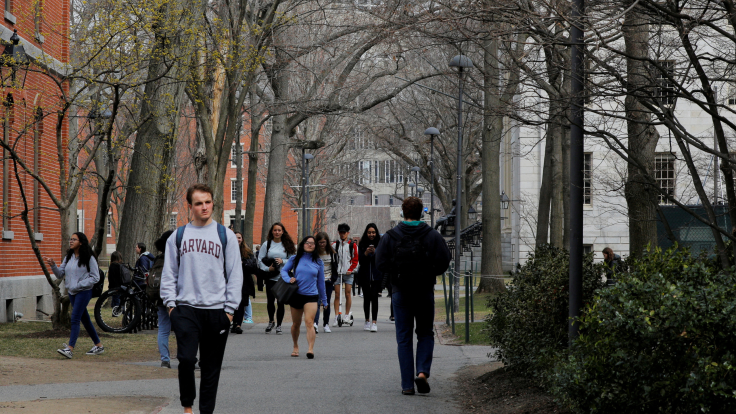Survey Shows 19% Of Fresh Graduates Bring Their Parents To Job Interviews
Employers believe that graduates are unprepared for the workplace

When students finish their education and receive their degree, the next stage of life is usually focused around securing employment.
For some, the process can be straightforward and they are well prepared for the working landscape, but many struggle with transitioning into employment.
According to a study recently conducted by online magazine, Intelligent, employers are now increasingly reluctant to hire recent graduates and have a preference for bringing in someone with more experience.
Intelligent spoke to 800 managers, directors and executives in the United States regarding their hiring process.
According to 39 per cent of the respondents, they do not favour hiring recent college graduate even if they are qualified and meet all the job requirements. In fact, employers go out of their way to come up with benefits and terms that appeal to older candidates as a means to completely avoid hiring new graduates.
60 per cent of respondents say they'd much rather increase the benefits of older workers, 59 per cent offer larger salaries, 48 per cent allow remote work and 46 per cent of employers would rather hire an overqualified older applicant instead of a Gen Z applicant.
Apart from this, the study shows a couple of more alarming trends that employers deem are pretty much an applicant's nail in the coffin: 19 per cent of applicants bring their parents to their job interview and 20 per cent aren't prepared for the interview, at all.
When asked to go to into specifics about the latter, respondents said that new graduates find it difficult to make eye-contact, would request for unreasonable compensation and are not dressed appropriately for the interview.
Other points brought up by employers include the following: employers don't think younger employees are capable of handling their workload, young hires usually arrive late and more importantly, do not meet deadlines.
In fact, the clash between employers and newly graduated employees is so seemingly severe that 63 per cent of the former believe that the latter have a high sense of entitlement, and that young workers are easily offended and are simply ill-equipped to conduct themselves in a professional environment.
Whilst these issues are alarming and seem to put most, if not all, of the blame on young workers, the entire blame cannot be put on them, according to professor of strategic communication at Ithaca College, Diane M. Gayeski.
She explains: "Employers need to recognize that, due to the COVID-19 pandemic, young people graduating from college had more than two years of disruption in their education as well as their social and professional development. They likely took classes online and were unable to participate in clubs, internships or summer jobs."
Gayeski also mentioned how college graduates can take it upon themselves to be better prepared when meeting with a potential employer for the first time. She stated: "See if you can get a sense of the formality of the organization, which will inform the kinds of conversations you might have, and even what you should wear."
The professor went on to add: "Take advantage of mock interviews or other job preparation workshops that your college might offer. The more comfortable you are with the process, the more you'll be able to be fluent, make eye contact, and bring forth your personality."
© Copyright IBTimes 2025. All rights reserved.






















